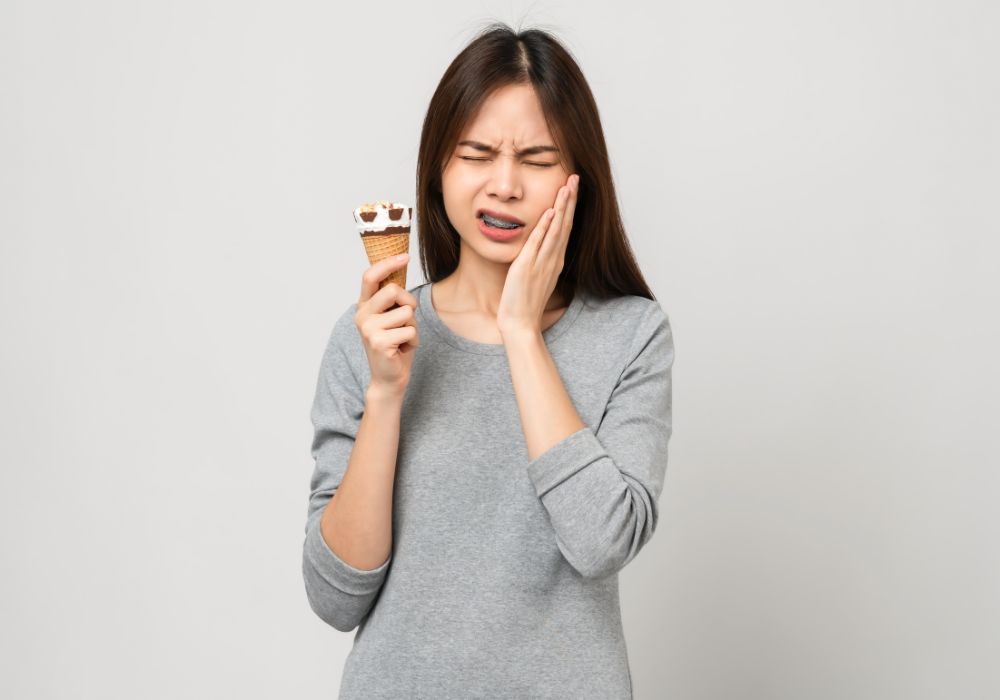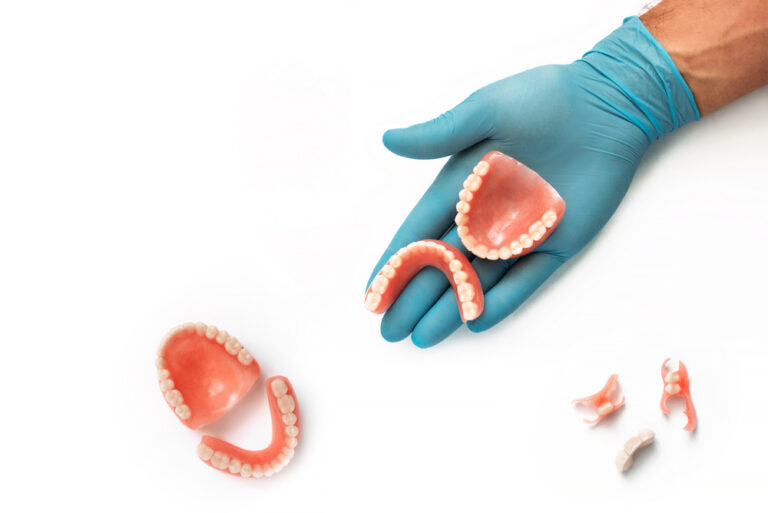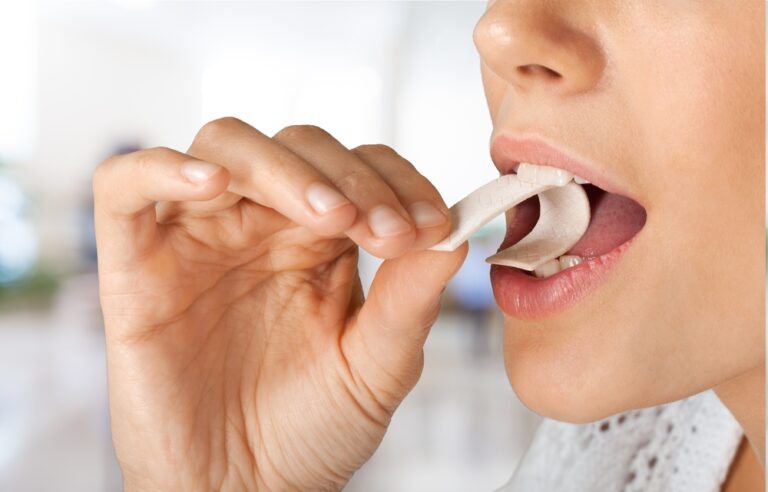Tooth sensitivity is an extremely common dental problem that affects millions of people. It is characterized by pain or discomfort in the teeth when consuming hot, cold, sweet, acidic, or even neutral foods and drinks.
While tooth sensitivity can be annoying, unpleasant, and disruptive to daily life, the good news is that it often comes and goes. This article will take an in-depth look at the causes, treatments, and prevention tips for transient tooth sensitivity that resolves on its own.
What is transient tooth sensitivity?

Transient tooth sensitivity, also sometimes called short-term tooth sensitivity or intermittent tooth sensitivity, refers to tooth sensitivity that comes and goes. It may last for just a few minutes or a few hours at a time in response to some sort of external stimulus.
Some examples of transient tooth sensitivity include:
- Pain when drinking a cold glass of water or hot coffee that goes away shortly after finishing the drink
- Mild discomfort when eating ice cream that resolves after the bowl is finished
- Tenderness biting into something sweet or acidic like fruit that fades quickly
- Sensitivity while brushing that lingers for a little while after but then disappears
- Irritation from cold air or breathing that alleviates once back indoors
The common thread is that this type of tooth sensitivity is temporary and ultimately resolves on its own once the provoking stimulus is removed. It may reoccur the next time something hot, cold, or acidic touches the teeth, but then quickly vanishes again afterward.
This is distinct from chronic or recurrent tooth sensitivity that persists indefinitely over time. Understanding the differences in duration and causation is helpful for determining appropriate treatment.
What causes transient tooth sensitivity?
There are a number of potential causes for short-term or intermittent tooth sensitivity:
External factors
The most common cause of transient tooth sensitivity are external factors that provoke a temporary, mild irritation in the nerve endings of the teeth. This includes:
- Temperature changes – Hot or cold foods or drinks are a prime stimulator of temporary sensitivity. Sudden changes in temperature cause fluid shifts in the microscopic tubules of the dentin that trigger nerve receptors.
- Acidic foods – Acidity also provokes a reaction in the dentin tubules that irritates nerves. Foods like citrus fruits, vinegar, carbonated beverages, and wine are common culprits.
- Sweet foods – Even sugary sweets and desserts can spark temporary sensitivity due to their osmotic effect drawing fluid into the dentin.
- Abrasive foods – Hard, crunchy, or abrasive foods like nuts, chips, and popcorn can also mechanically irritate sensitive teeth.
In all of these cases, the sensitivity resolves quickly once the stimulus is removed and the nerves return to equilibrium.
Dental procedures
It’s also very common to experience temporary hot/cold sensitivity after dental treatments like:
- Teeth cleanings
- Fillings, crowns, or other restorations
- Tooth extractions
- Dental implants or bridges
- Root canals
- Teeth whitening
This post-procedure sensitivity occurs as the teeth are still adjusting and recovering from the minor inflammation and irritation that occurs during treatment. The nerves remain a bit sensitive and over-responsive for a brief period but then calm down and return to normal.
Aggressive brushing
Another source of transient tooth sensitivity can be aggressive brushing habits, especially with hard-bristled toothbrushes. Excessive scrubbing and pressure can wear down enamel and expose more of the sensitive dentin surface. This causes temporary pain with exposure to stimuli.
Bruxism
Tooth grinding or clenching from bruxism also triggers short-term sensitivity. The excessive forces exerted on the teeth strain nerves and ligaments, leading to temporary soreness and sensitivity that resolves with rest and relaxation of the jaw muscles. Night guards help prevent this issue during sleep.
Gum recession
As gums recede from periodontal disease, it can expose sensitive root surfaces and cause temporary irritation from factors like temperature changes or abrasive brushing. Proper daily oral hygiene helps keep this form of sensitivity in check.
Sinusitis
Sinus pressure, congestion, and nasal inflammation from conditions like sinusitis or allergies can also sometimes radiate tooth pain and sensitivity. It often comes and goes along with the degree of sinus congestion.
The underlying theme with transient sensitivity is that a specific instigating factor triggers nerve irritation that inevitably goes away on its own shortly after that factor is eliminated. This contrasts with chronic sensitivity that lingers indefinitely without provocation.
What causes recurring or chronic tooth sensitivity?

While transient tooth sensitivity is fleeting and intermittent, recurring or chronic tooth sensitivity persists over long periods of time without relief. This indicates an underlying dental issue needs to be addressed. Some potential causes include:
Dental caries
Untreated tooth decay that reaches the inner dentin layer causes lasting sensitivity. This happens as the decay dissolves away mineralized tissue and exposes sensitive nerve endings in the pulp chamber. The sensitivity becomes constant.
Cracked or fractured teeth
Cracks or chips in the enamel from trauma or grinding can allow external stimuli deep into the tooth. This irritates the internal nerves and causes continuous sensitivity. Fractured cusps or split teeth also provoke lingering sensitivity.
Worn enamel
Over many years, thin worn enamel stops protecting the dentin properly. This allows hot/cold stimuli to penetrate deeper and provoke more constant, lasting sensitivity.
Exposed tooth roots
Gum recession from periodontal disease or aggressive brushing exposes sensitive tooth roots. The cementum layer on roots provides less protection than enamel, resulting in chronic sensitivity.
Compressed nerves
Habitual teeth grinding or clenching wears down enamel and puts chronic stress on nerves. This can lead to compressed nerves and constant, spontanous pain.
Root resorption
Rarely, chronic inflammation in the pulp causes the root structure to break down internally. This resorption exposes nerves and vascular tissue to mouth bacteria and provokes lasting sensitivity.
Dental treatments
Dental procedures can sometimes cause lingering sensitivity if nerves remain irritated after the customary post-procedure recovery period.
Trigeminal nerve issues
Neuropathic trigeminal nerve problems, often from chronic inflammation, can produce tooth sensitivity and pain without underlying dental issues.
As you can see from the wide range of potential causes, recurring or chronic tooth sensitivity should never be ignored or left untreated. An exam by a dentist is needed to determine the exact source and remedy the problem before it worsens.
Tips for relieving transient tooth sensitivity
While short-term tooth sensitivity inevitably resolves on its own, there are some helpful tips to gain temporary relief while waiting for it to pass:
- Avoid hot, cold, sweet, acidic foods/drinks – Stick to room temperature beverages and neutral foods to prevent aggravating nerves.
- Use desensitizing toothpaste – Toothpastes containing compounds like strontium chloride or stannous fluoride help block pain signals.
- Rinse with warm salt water – Saltwater rinses soothe inflamed nerves and reduce sensitivity discomfort.
- Take OTC pain relievers – Anti-inflammatory medications like ibuprofen can temporarily reduce sensitivity.
- Use sensitive toothpaste – These toothpastes contain compounds that seal exposed dentin tubules.
- Apply desensitizing gel – Gels to put directly on the sensitive tooth surface provide quick but short-term relief.
- Get fluoride treatments – In-office professional topical fluoride strengthens enamel and offers temporary sensitivity relief.
- Wear desensitizing mouth guards – Custom dental guards with desensitizing compounds provide constant relief overnight while sleeping.
- Avoid whitening products – They can worsen temporary sensitivity, so hold off until it resolves.
- Improve brushing habits – Switch to a soft brush and use light pressure if it’s related to vigorous brushing.
The good news is transient sensitivity generally resolves fully on its own within days to weeks. But if it becomes severe or persists longer than expected, seek dental evaluation and treatment.
When to see a dentist for tooth sensitivity
Make an appointment with your dentist promptly if:
- Sensitivity does not resolve within 2-4 weeks with proper home care
- Sensitivity is severe, lingers after stimulus removal, or disrupts sleep
- Sensitivity is accompanied by dental problems like untreated decay, cracks, or trauma
- You experience recurring bouts of sensitivity between periods of relief
- Sensitivity occurs spontaneously without a provoking stimulus
- Sensitivity worsens over time instead of improving
A dentist has specialized tools and tests to get to the source of sensitivity, such as:
- Clinical dental examination – A visual exam checks for issues like fractures, wear, gum recession, etc. Probing tests for loose teeth or periodontal pockets indicating infection.
- Percussion testing – Tapping lightly on teeth identifies inflammation or abscesses.
- Thermal stimulation – Alternating hot and cold stimuli on each tooth help pinpoint which teeth exhibit sensitivity.
- Tactile testing – Mapping sensitivity to touch and pressure indicates problems like cracked teeth.
- Dental radiographs – X-rays visualize the roots and surrounding bone for hidden issues.
- Pulp vitality testing – Electric or thermal tests assess the vitality and function of the tooth’s nerve.
- Microscopes – Microscopes help find tiny cracks, decay, and structural defects.
Based on the exam findings, your dentist will determine the appropriate treatments to stop chronic sensitivity for good. Leaving it untreated allows the problem to worsen over time.
Dental treatments for chronic tooth sensitivity

Common dentist-provided treatments for lasting tooth sensitivity include:
Dental fillings and crowns
Fillings and crowns repair cracks and decay to completely seal the interior tooth from external stimuli. Crowns fully encase the entire tooth for protection.
Root canals
If the nerve is infected or severely inflamed from advanced decay, a root canal removes the nerve and blood supply from the tooth to stop the pain. The interior pulp chamber and canals are sealed.
Gum grafts and flap surgery
Grafting donor gum tissue over exposed sensitive roots provides a barrier against irritation. It protects them and reduces root sensitivity.
Tooth extractions
Extracting a tooth that is non-restorable from decay, fracture, or other damage removes the source of pain permanently.
Occlusal guards and bite splints
Guards worn over the teeth at night pad them from excessive clenching and grinding that can cause enamel wear and compressed nerves.
Desensitizing treatments
In-office professional desensitizing treatments use compounds like stannous fluoride, silver nitrate, or calcium phosphate to seal dentin tubules.
With the right treatment from your dentist, chronic dental sensitivity can be effectively managed for long-term relief. Ignoring it indefinitely allows the problem to progress.
Prevention tips to avoid recurring tooth sensitivity
You can help prevent transient tooth sensitivity from becoming a chronic problem with these daily oral hygiene and dietary habits:
- Maintain excellent oral hygiene with twice daily brushing and daily flossing to prevent decay and gum disease.
- Use a soft or extra-soft bristled toothbrush and brush gently using minimal pressure to avoid enamel abrasion.
- Limit consumption of acidic foods and drinks that erode enamel such as citrus fruits, vinegar, soda, wine, etc.
- Have regular dental cleanings and checkups every 6 months to detect issues early.
- Ask your dentist about sealants and fluoride treatments to strengthen your enamel.
- Drink fluoridated water and use fluoride toothpaste.
- Wear a nightguard if you grind or clench your teeth to prevent wearing down enamel.
- Choose toothpastes, rinses, and toothbrushes formulated for sensitive teeth.
- Don’t brush right after consuming hot, cold, acidic, or sweet foods or drinks.
- Have gum recession treated promptly to avoid root sensitivity.
With diligent oral care and regular dental visits, you can stop transient sensitivity from becoming chronic. Let your dentist know if sensitivity persists or concerns you.
Frequently Asked Questions
What are the most common causes of temporary tooth sensitivity?
The most common causes of transient tooth sensitivity include drinking hot or cold liquids, eating sweet or acidic foods, brushing too abrasively, dental procedures, teeth grinding or clenching, gum recession, sinus congestion, and using whitening products. The sensitivity is fleeting.
How long does temperature sensitivity usually last after getting a new crown or filling?
It’s very normal to have some hot/cold sensitivity after dental work like new fillings or crowns that lingers for 2-4 weeks as the tooth adjusts and inflammation subsides. If sensitivity continues past 4 weeks, contact your dentist to have it evaluated.
Why does tooth sensitivity seem to flare up more at night?
Tooth sensitivity at night frequently occurs from vigorous brushing before bed or teeth clenching/grinding during sleep. Avoiding these triggers and wearing a nightguard typically provides relief. The darkness and quiet during sleep also makes existing sensitivity more noticeable.
Can teeth become permanently sensitive after using whitening strips or gels?
While tooth whitening products can cause temporary sensitivity during use, they do not cause permanent nerve damage or lasting sensitivity when used as directed. Any post-whitening sensitivity should fully resolve within 1-2 weeks once the treatment is complete.
Is it possible for temperature sensitivity after a root canal to come and go?
Yes, it’s possible to experience intermittent cold/hot sensitivity after a root canal as the tooth adjusts. The first month or two, occasional sensitivity with temperature changes is normal and should steadily improve. If sensitivity persists long-term, contact your dentist.
The bottom line
Mild tooth sensitivity that comes and goes is very common and typically not a major issue if it resolves fully between episodes. However, sudden severe sensitivity or sensitivity that lingers for more than a few weeks requires prompt dental evaluation and treatment. Catching chronic sensitivity early before substantial damage occurs gives the best long-term prognosis. Don’t delay visiting your dentist if your teeth remain persistently sensitive. With proper prevention and treatment, tooth sensitivity can often be banished for good.






